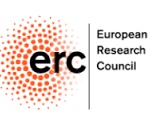 Media Representations of Higher Education Students: a cross-national comparison
Media Representations of Higher Education Students: a cross-national comparison
Department of Sociology, Faculty of Arts and Social Sciences, University of Surrey
I am very pleased to be advertising a PhD studentship on ‘Media Representations of Higher Education Students’. This forms part of a wider project (called EuroStudents) funded by the European Research Council, which will explore the different ways in which higher education students are constructed across six European nations.
The PhD studentship comprises two strands of work. Firstly, representations of students within newspapers in the six countries will be analysed. A content analysis will be conducted for two national newspapers from each of the countries involved in the research (Denmark, England, Germany, Ireland, Poland and Spain). A broadly representative sub-sample of texts will then be chosen for further, detailed discursive analysis. In the second strand, two popular film or drama-based television programmes that feature students will be selected from each country and analysed using a discursive approach. Comparisons will be made within each country, across all six countries, and then in relation to the results of the analysis of news media.
The successful candidate will be part of the EuroStudents research team and also the vibrant research community within the Department of Sociology at the University of Surrey. Further information about the research project can be found here.
Funding
The 3-year studentship is funded by the European Research Council. It covers Home/EU tuition fees and a maintenance grant of £14,057 per annum.
Entry requirements
Essential:
Masters level degree in Sociology, Education, Media, Human Geography or a related subject
Experience of media analysis
Excellent oral and written communication skills
Desirable:
Knowledge of issues related to higher education
Knowledge of one of more languages covered by the project, in addition to English (i.e. Danish, German, Polish, Spanish)
Familiarity with one or more of the countries outside the UK involved in the research (i.e. Denmark, Germany, Ireland, Poland, Spain)
Applications
To apply, please send:
1. A covering letter highlighting: (i) why you are interested in this particular research project; (ii) why you are interested in doing a PhD; (iii) which specific skills and aptitudes you feel you would bring to the project.
2. A copy of your current CV including the names of two referees and the marks you have received for your master’s modules to date. (Please feel free to include a transcript of your marks, alongside your CV, if this is easier.)
3. A sample of your academic writing (e.g. an essay or dissertation).
These should be sent by email to Rachel Brooks: r.brooks@surrey.ac.uk Please also contact Rachel for any queries you may have associated with this studentship.
Closing date: 5pm, 27th May 2016
Interview date: to be confirmed
Start date: 26th September 2016




 July will focus on the question of what ‘education for the future’ should look like.
July will focus on the question of what ‘education for the future’ should look like.